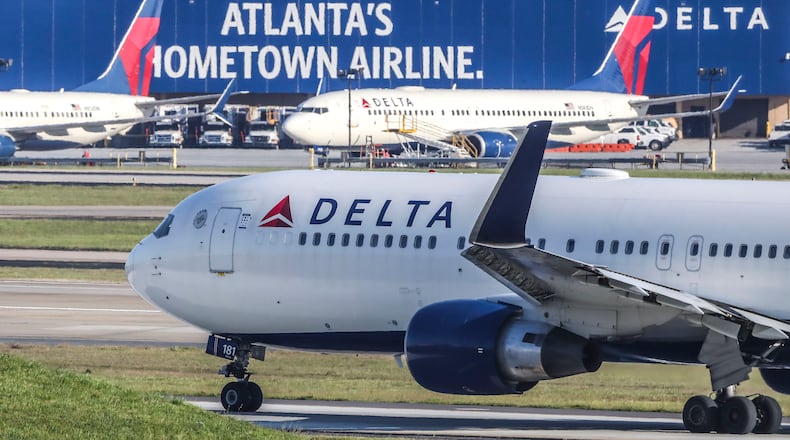The resurgence in travel brought on earlier this year by the rollout of COVID-19 vaccines raised hopes that Delta Air Lines would recover from the pandemic quicker than previously expected. But, with the latest surge in coronavirus cases, the company’s revenues still aren’t likely to return to 2019 levels until 2023.
Atlanta-based Delta lost $12.4 billion in 2020 because of the pandemic. But, by mid-July of this year, the airline reported that its domestic leisure travel had fully recovered to 2019 levels, and Delta CEO Ed Bastian said that he saw “clear signs of business and international demand recovery heading into the fall.”
The optimism has become more muted in recent weeks as the delta variant has spread and hospitalizations have increased, delaying many businesses’ plans to bring employees who have been working at home back into offices.
“The variant has caused a bit of a pause in some segments of our business, particularly our business travel,” Bastian said Thursday during a virtual investor conference hosted by investment bank Cowen.
“We were anticipating, as we got into the post-Labor Day period, seeing another step up in business travel,” he said. Many companies now likely won’t bring workers back until later this year or early next year. “So, it’s probably about a 90-day pause,” he said.
The travel industry also has been pushing for the reopening of international borders, but the variant has instead led to more restrictions. “That’s another thing we’ve been wrestling with, trying to get international borders open again,” Bastian said.
The company still expects to report an adjusted pre-tax profit for this quarter, but it is cutting back its planned flight capacity for the December quarter. In a Thursday filing with the U.S. Securities and Exchange Commission, the company said it will continue to evaluate additional schedule changes as needed.
Delta’s investor update filed with the SEC also highlighted the roller coaster ride the company has been on for the last couple of months. “Demand exceeded expectations in July,” the filing said. “In early August, the pace of recovery paused due to the sharp rise in COVID cases.” Booking trends have stabilized in the last 10 days, according to the company.
Because business travel is no longer expected to accelerate as once anticipated, the airline now projects that its revenue will be at the lower end of previous forecasts, while costs are higher than expected due to hiring through the summer to prepare for more passengers.
Delta last year cut about 18,000 people from its staff of 90,000 through buyouts and early retirements. As travel ramped up, it hired nearly 6,000 people this year. And Bastian said Thursday he expects the company will likely hire about 1,000 pilots a year for the next several years. The company is also using Delta employees to do some work previously performed by contractors, including pushing wheelchairs, cleaning and handling catering work.
Bastian said Delta’s revenue is still 30% lower this quarter than it was in 2019. Delta chief financial officer Dan Janki also said it will be a few years before the airline’s fleet returns to the size it was in 2019.
Bastian said corporate travel, a key segment, is only about 40% of what it used to be. While some business people are traveling, “they’re just not traveling in the volumes necessary yet to get the business back to where we need it to be,” he said.
About the Author
The Latest
Featured



